This Large District Uses 4 Questions to Teach Every Educator How the Brain Learns
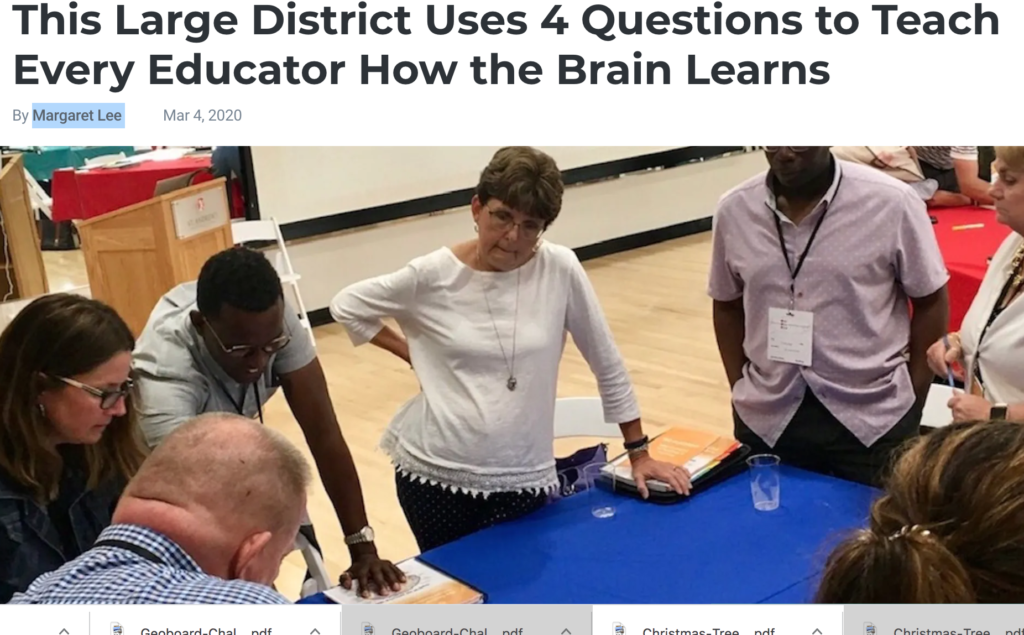
This story explores the work being done in the Frederick County Public Schools in Maryland to align research on learning science with their practice district-wide. The district has done extensive research on mindset theory and research on how the brain learns. Staff are then evaluating their current practices with this lens, asking questions such as… Read More ›
Why Giving Kids a Roadmap to Their Brain Can Make Learning Easier
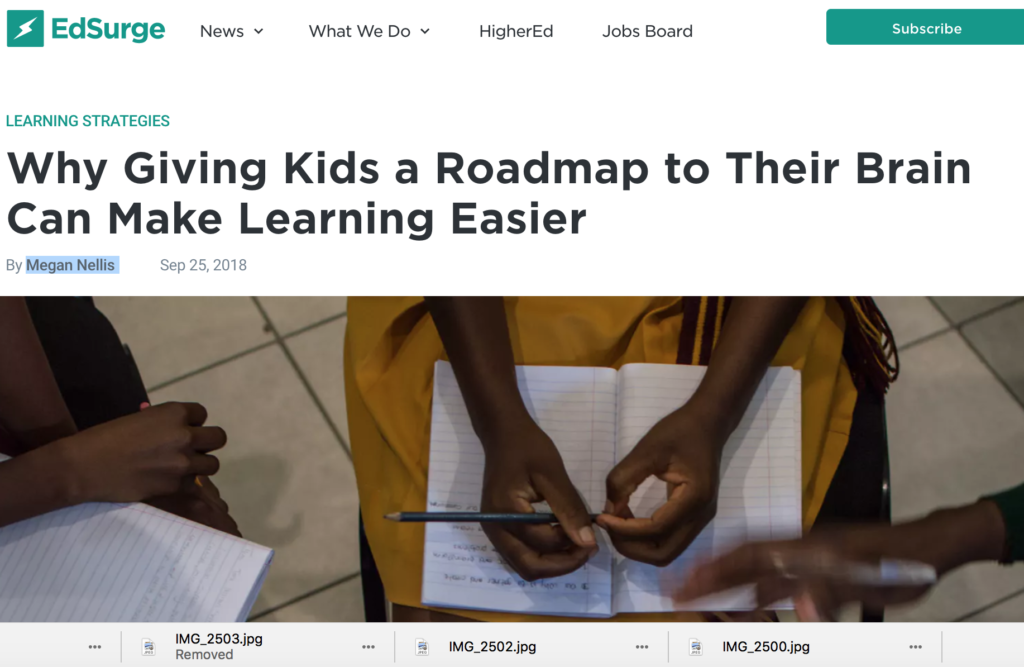
This article discusses the work of Imagine Scholar, a youth and educational development initiative in South Africa, to help students understand the science of learning. Throughout the four year program, students learn about growth mindset, memory, neuroplasticity, and how the adolescent brain works. They are also taught and given opportunities to practice many metacognitive strategies to… Read More ›
Student-centered Learning Reflects Science of Learning for All Youth

Originally posted in Youth Today My 6-year-old is obsessed with baseball stadiums. All summer his attention was captured by stadium history, especially for our local team the St. Louis Cardinals. Every day this summer, he constructed stadiums from magnet tiles and blocks. Before bed, he gave me tours of his elaborate structures and explained the… Read More ›
How to Integrate Growth Mindset Messages Into Every Part of Math Class

This article discusses the research around teaching and learning mathematics conducted by Catherine Good, a professor who studies social psychology and growth mindset. Good found that growth mindset—the idea that one can improve understanding and performance by building neural pathways through repeated work—is especially important for students studying math. Teaching growth mindset may protect against stereotype threat—the perception… Read More ›
How to Address Executive Function Skills in the Classroom—and Why You Should
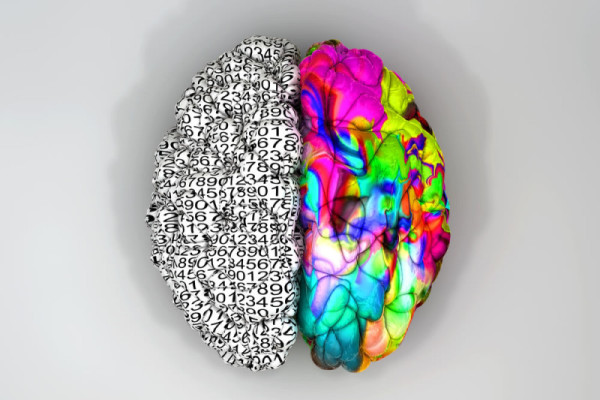
This article, written from a teacher’s perspective, explores the idea that increasing student achievement may lie in teachers awareness of the cognitive processes that enable students to manage information and complete tasks. She asserts that sometimes the best way to approach an instructional challenge is to take a step back to consider how the brain functions… Read More ›
Matching Edtech Products With Neurological Learning Goals

This post can help you make a list of what you want from edtech digital tools that will best suit your goals and are most consistent with neuroscience research correlations about how the brain most successfully processes information. The word edtech refers to educational technology that includes online learning activities through games, websites, computer-assisted instruction,… Read More ›
Using a “Growth Mindset” to help Youth Succeed

Originally posted on Jobs for the Future Failing and under-resourced schools, neighborhoods beset by street violence, lack of job opportunity, families split apart by addiction—many low-income young people of color face such well-chronicled barriers. Less visible and understood is the persistence and resilience that some of them demonstrate as they struggle in their teens and… Read More ›
Carol Dweck Revisits the “Growth Mindset”

Originally posted on Education Week on September 22, 2015 For many years, I secretly worked on my research. I say “secretly” because, once upon a time, researchers simply published their research in professional journals—and there it stayed. However, my colleagues and I learned things we thought people needed to know. We found that students’ mindsets—how… Read More ›
Students Give Thumbs Up for Brain Based Teaching
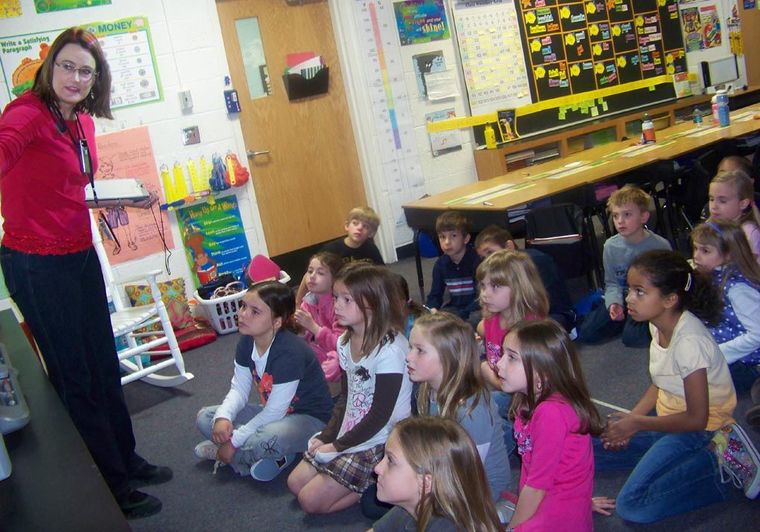
This article in The Edmond Sun describes the efforts of a local teacher to make metacognition come alive in her second-grade classroom. She explicitly teaches students how the brain works. In one lesson students use pipe cleaners to represent neural pathways and create a class brain, making visible learning pathways by connecting concepts from one… Read More ›
“The Boss of My Brain”: Explicit Instruction in Metacognition Puts Students in Charge of Their Learning
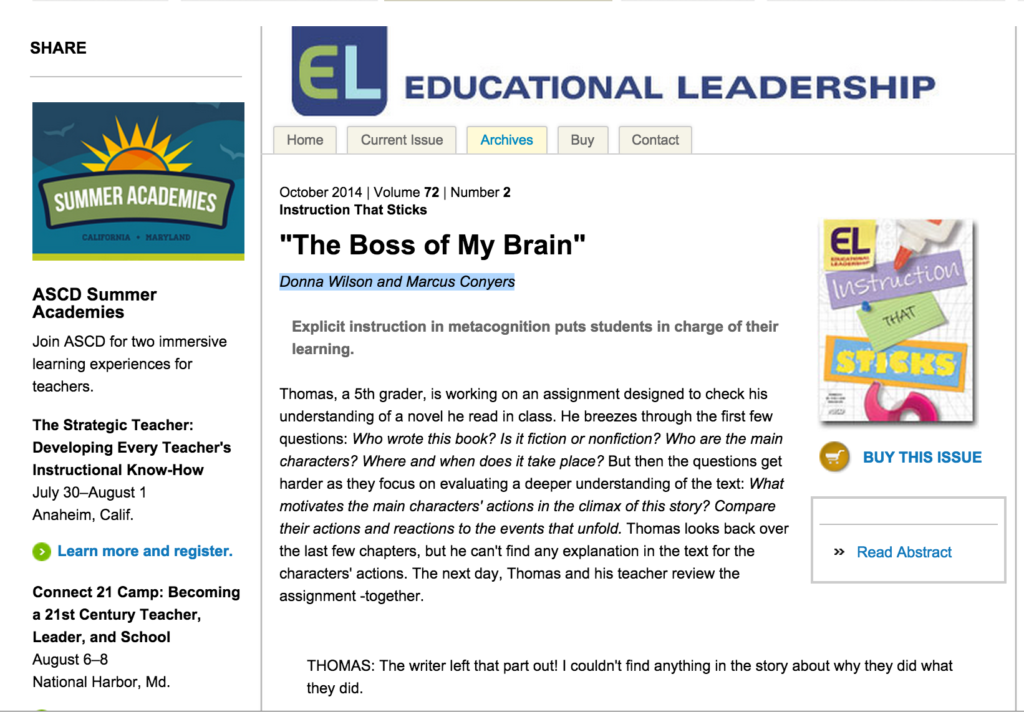
This article in Educational Leadership, highlights the importance of teaching students of all ages metacognition strategies. It discusses setting the stage by teaching students about neuroplasticity—that they can teach themselves to “become smarter” through learning. It also provides specific strategies and examples for teaching metacognitive skills at the elementary, middle, and high school levels. Lastly,… Read More ›
The Brainwaves Video Anthology

This video anthology is produced and filmed by Bob Greenberg. The Brainwaves series contains short videos (5-10 minutes long) on ideas and topics of education relevant to student-centered learning in the 21st century. Source Organization: Brainwaves Video Anthology Visit the Resource
Six Tips for Brain-based Learning: A Resource Guide for K-12 Educators
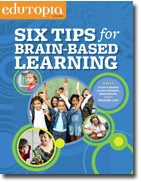
This free, 13-page resource guide by Edutopia offers practical tips for putting brain-based learning into action in K-12 classrooms, along with supporting resources including reading lists, videos, and published articles. Overview This resource guide covers 6 topics: Creating a safe climate for learning Encouraging a growth mindset Emphasizing feedback Getting bodies and brains in gear… Read More ›